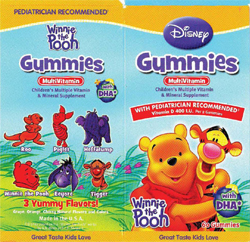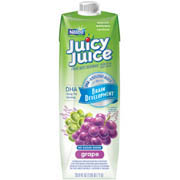House holds hearings on nutrition standards for food marketing to kids
Reports are coming in on the House hearings on the IWG report recommendations. The IWG, recall from the previous post, is an Interagency Working Group of four federal agencies attempting to set nutrition standards for foods allowed to be marketed to kids.
This first report comes from Broadcasting & Cable:
The first panel of a joint hearing Wednesday on government-proposed food marketing guidelines featured government officials explaining that the principles, announced last April, are only voluntary recommendations to Congress that industry can ignore if they chose, while legislators, primarily Republicans, countering that they represent Big Brother government intruding into meal planning for families and a focus on marketing, without scientific backing, rather than focusing on more physical activity.
Republican lawmakers, it seems, want more science. That’s always step one in undermining public health proposals: attack the science. Subsequent steps, you may recall, include attacking critics, focusing on physical activity, and blaming personal responsibility for obesity and its consequences.
According to Healthwatch, Representative Henry Waxman (Dem-Calif)
Compared Republican defenders of unbridled food marketing to children to past champions of the tobacco industry. [He] drew parallels between Wednesday’s hearing on proposed voluntary marketing restrictions and a 2003 hearing during which some Republicans promoted the safety of smokeless tobacco.
“I just find this an amazing hearing,” Waxman said. “The only thing I can analogize it to is after all the tobacco issues we discussed for many years, Republicans took charge and we never heard anything more about tobacco. Then, suddenly we had a hearing about tobacco.
And the hearing was about how smokeless tobacco should be encouraged as a way for smokers to give up smoking. It was geared to promoting an industry that no doubt supported financially many of the members. I wonder if this hearing is about the same subject.”
What I find most disturbing is the FTC’s backing down on the recommendations which were agreed upon by four federal agencies and voluntary. CNN reports that David Vladeck, director of the FTC Bureau of Consumer Protection, said:
The coalition of government agencies is “in the midst of making significant revisions” to the original proposal.
Among the changes he suggested are narrowing the age group targeted and focusing on children aged 2 to 11 instead of up to age 17 and allowing marketing of the unhealthier foods at fundraisers and sporting events.
Vladeck also said that his agency would not recommend that companies change packaging or remove brand characters from food products that don’t qualify, as was originally suggested in the guidelines.
“Those elements of packaging, though appealing to children, are also elements of marketing to a broader audience and are inextricably linked to the food’s brand identity,” Vladeck said at the hearing.
This, as I keep pointing out, is about protecting corporate health at the expense of children’s health.
Sad.





